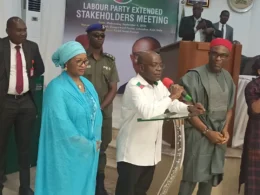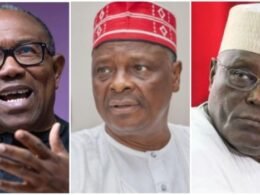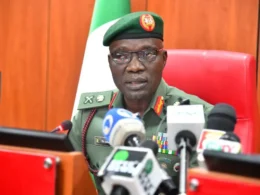Since assuming office in 2023, President Bola Tinubu has rolled out a series of pivotal policies aimed at reforming Nigeria’s economy and governance. His administration has focused on economic reforms, security, and governance restructuring, although it has faced significant challenges, particularly in managing the consequences of removing the fuel subsidy and handling inflation.
Policies and Decisions of the Tinubu Administration
- Removal of Fuel Subsidy
President Tinubu’s first major move was to eliminate the long-standing fuel subsidy, a decision intended to alleviate the financial burden on the government. While this policy freed up funds previously used to subsidize fuel prices, it also led to a sharp increase in fuel costs for Nigerian consumers. - Unification of the Exchange Rate
Tinubu implemented a policy to unify Nigeria’s multiple exchange rates, allowing market forces to determine the exchange rate. This was aimed at enhancing transparency and boosting confidence in the Naira. - Signing of the Student Loan Act
In a bid to improve access to higher education, Tinubu signed the Student Loan Act, which enables students to finance their education through a loan system. - Electricity Reform
Tinubu signed a law enabling states, companies, and individuals to generate, transmit, and distribute electricity. This policy is geared toward improving electricity access across Nigeria. - Dissolution of Governing Boards
As part of governance reforms, Tinubu dissolved the boards of federal parastatals, agencies, and institutions in June 2023 to streamline operations. - Appointment of New Security Chiefs
Tinubu overhauled Nigeria’s security apparatus by appointing new service chiefs, aiming to address the nation’s security challenges more effectively. - Abolishment of Funding for Professional Bodies
To reduce government expenditure, the administration announced that professional bodies would no longer receive budgetary allocations from 2024 onwards, requiring them to become self-funded. - Foreign Exchange Reforms
Under Tinubu’s directive, the Central Bank of Nigeria shifted to a managed float of the Naira, moving away from a fixed exchange rate regime to better reflect market realities. - Anti-Corruption Measures
In a strong stance against corruption, Tinubu suspended the former Central Bank Governor and the Chairman of the Economic and Financial Crimes Commission (EFCC), signaling his commitment to addressing inefficiencies within key institutions. - Implementation of New Minimum Wage
In July 2024, Tinubu signed the National Minimum Wage Amendment Bill into law, raising the minimum wage to ₦70,000 per month. - Import Duty Waivers on Food Items
In August 2024, Tinubu approved the implementation of zero percent import duty and VAT exemptions on basic food items, aiming to reduce the cost of living and ensure food security. - New Withholding Tax Policy
As part of ongoing fiscal reforms, Tinubu introduced a simplified withholding tax regime in July 2024, aimed at addressing challenges in Nigeria’s tax system. - Approval of New Agencies
Despite earlier calls for streamlining government agencies, Tinubu approved the establishment of two new commissions: the South East Development Commission and the North West Development Commission. - Livestock Reform Initiatives
In July 2024, Tinubu inaugurated a committee to address the frequent clashes between farmers and herders. He also established a Livestock Ministry to oversee these efforts. - Suspension of Import Duties on Healthcare Products
In June 2024, Tinubu signed an Executive Order to boost local production of healthcare products by eliminating tariffs, excise duties, and VAT on specified machinery and materials, aiming to make Nigeria’s health sector more competitive.
While President Tinubu’s policies have been bold and aimed at reforming key sectors, they have also sparked public debate, particularly regarding the removal of fuel subsidies and inflation management. The administration continues to navigate these challenges as it seeks to stabilize Nigeria’s economy and improve governance.









